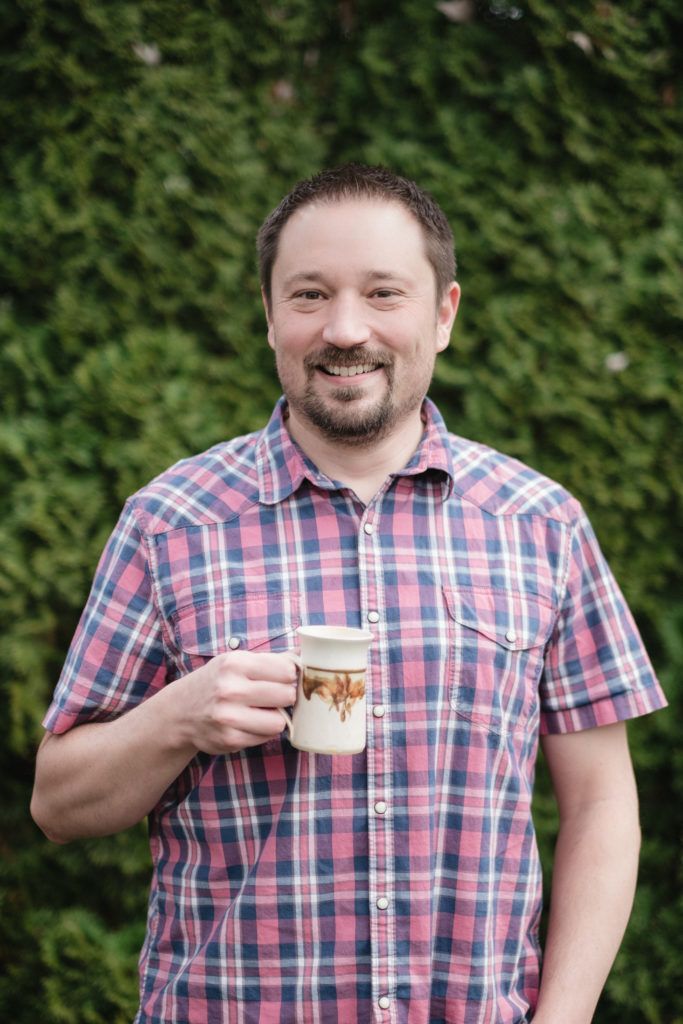
Dustin Bagby co-pastors the Evergreen Community in Portland, OR (with Luisa Gallagher). He has an M.Div from Western Seminary in Portland, and a B.A. in Preaching and Bible from Lincoln Christian University in Lincoln, Illinois. Dustin is married to Kelli, and they have two boys; Gram and Owen, and daughter Rose.
How would you describe the area your church is in?
Hipster.
How would you describe the journey of pastoring Evergreen? What have been some of the milestones/different seasons?
I’ve been at Evergreen for 13 years so there have been a lot of different seasons. It’s been exciting to be a part of a church that has been a healing place for so many people in the “formerly Christian” camp as well as people experiencing Jesus for the first time.
Looking back, what do you know now you wish you had known when you first started at Evergreen?
I’m not sure it’s as much about what I wish I would have known as much as who I wish I would have been. Certainly, we can’t become that person without a lot of experience and difficulties getting there, but to have been introduced to some works like Edwin Friedman’s A Failure of Nerve and the concepts that come with it earlier would have been VERY helpful.
As you think about what you’ve been able to do so far in ministry there what are some things you have done/tried that have worked well?
I think one of the key things we’ve tried that has worked well and has always been appreciated is leaving space for dialogue on Sundays as well as other environments where people can share honestly. It’s in that sharing where people realize that we’re not encouraging people to fake life or pretend everything is okay all the time. That honesty and authenticity have gone a long way in people realizing their need for Jesus and being able to encourage one another and care for each other.
What hasn’t worked so well? What have you had to rethink/reimagine/rework? What is one failure you experienced and what did you learn from it?
Just one? I think one of the big failures from the last three years was the lack of thought we as leaders put into how we processed and dialogued about the LGBTQ conversation as a community. There was pressure from numerous people that the elders be explicit about our position and give them some kind of “statement.” We’ve always been a community where people have been allowed to “disagree without disengaging” and it just wasn’t something that was our number 1 priority. I think as we studied and processed as elders and then brought it before the community we didn’t do it as thoughtfully or thoroughly as we could have. Given the fact that our community is so split on their opinion on this, I’m not surprised that it was difficult and painful. But I think there are ways we could have alleviated that. I wish we would have come to a greater consensus on our elder team with more time as well as had a more open community forum where people could express their thoughts in a larger setting.
I think one of the big failures from the last three years was the lack of thought we as leaders put into how we processed and dialogued about the LGBTQ conversation as a community. There was pressure from numerous people that the elders be explicit about our position and give them some kind of “statement.” We’ve always been a community where people have been allowed to “disagree without disengaging” and it just wasn’t something that was our number 1 priority. I think as we studied and processed as elders and then brought it before the community we didn’t do it as thoughtfully or thoroughly as we could have. Given the fact that our community is so split on their opinion on this, I’m not surprised that it was difficult and painful. But I think there are ways we could have alleviated that. I wish we would have come to a greater consensus on our elder team with more time as well as had a more open community forum where people could express their thoughts in a larger setting.
What is something you’ve been hearing from or learning from God in this last season of leading?
It seems like God has revealed lately a root of some of the challenges we’re experiencing right now. In an increasingly polarized and divisive time, it is very hard to continue to try to bridge the middle and be a church where conservatives and progressives are worshipping together as family. We’re encouraged to “take sides.” At Evergreen we are encouraging people to take Jesus’ side- who critiques both conservatives and progressives in deep ways. In Portland, sadly even amongst those who would call themselves Christ-followers, that is not a popular option.
What do you dream/hope/pray Evergreen looks like in five years?
In five years, I pray that Evergreen is a church community that has realized its potential for inviting and welcoming more people into the life of the family of God. I think a lot more formerly churched and unchurched people could meet Jesus, heal, and really thrive in our community if we continue to invite friends and neighbors into relationship with God and Evergreen.







